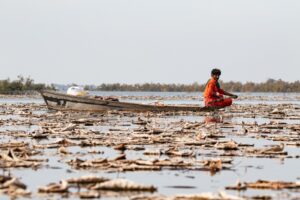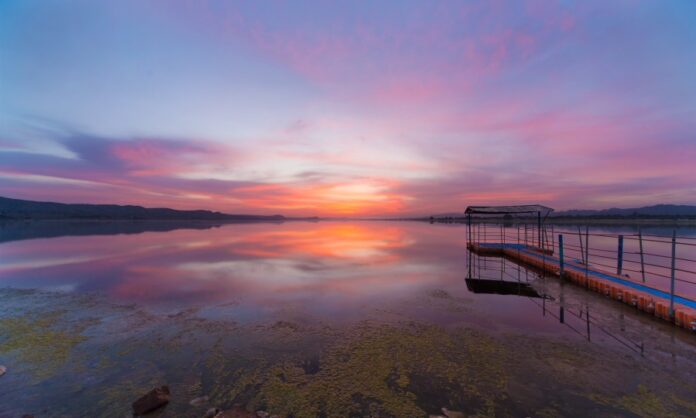- Advertisement -
ISLAMABAD, Feb 01 (APP):WWF-Pakistan, on the occasion of World Wetlands Day 2025, underscored the urgent need to protect and restore the country’s wetlands, which serve as crucial ecosystems for biodiversity, local communities, and sustainable development.
In a press release issued on the occasion, WWF-Pakistan highlighted that Pakistan is home to more than 240 significant wetlands, covering approximately 10% of the country’s land area.
These wetlands provide essential ecosystem services such as water filtration, carbon storage, flood control, and habitat for migratory birds and commercially important fish. However, these fragile ecosystems are under severe threat due to water scarcity, pollution, encroachment, unregulated development, climate change, and unsustainable resource extraction.

“The health of wetlands has been severely impacted by water stress, untreated industrial waste, land reclamation, and agricultural runoff. These factors continue to shrink wetland areas, diminishing their ecological value,” the organization stated.
The degradation of wetlands has placed several species at risk, including the Indus River dolphin, freshwater turtles, and migratory birds.
The Ramsar-listed wetlands in Pakistan such as Keenjhar Lake, Haleji Lake, Chashma Barrage, and Jiwani Coastal Wetlands are critical breeding and feeding grounds for species like white-headed ducks, flamingos, cranes, and the critically endangered Siberian crane.
Muhammad Jamshed Iqbal Chaudhry, Senior Manager of Research and Conservation at WWF-Pakistan, emphasized that wetlands are a lifeline for millions of Pakistanis, particularly those dependent on fisheries, agriculture, and tourism.
He also highlighted wetlands’ role in mitigating climate change by absorbing excess flood waters and reducing the impact of extreme weather events.
“Conserving wetlands is not just an environmental imperative but also a social and economic necessity,” Chaudhry stated.
WWF-Pakistan is actively working on conservation and restoration efforts through various initiatives, including the Water Resource Accountability in Pakistan (WRAP) and Recharge Pakistan (RP) programs.
These initiatives employ nature-based solutions (NbS) to address challenges facing wetlands, particularly in the Indus Delta, Punjab’s wetlands, and Balochistan’s coastal ecosystems.
The organization has also engaged policymakers to strengthen wetland protection laws and promote sustainable water management practices. Training programs for local communities in sustainable fishing, eco-tourism, and alternative livelihoods aim to reduce pressure on wetland resources, integrating biodiversity conservation with community resilience.
This year’s World Wetlands Day theme, “Protecting Wetlands for Our Common Future,” underscores the vital role wetlands play in supporting livelihoods, food security, water regulation, and climate resilience.
WWF-Pakistan has urged government agencies, civil society, businesses, and local communities to take collective action for wetland conservation.
The organization encouraged simple but impactful actions such as reducing water wastage, preventing plastic pollution, promoting sustainable agriculture, and participating in wetland clean-up activities to help preserve these invaluable ecosystems.

